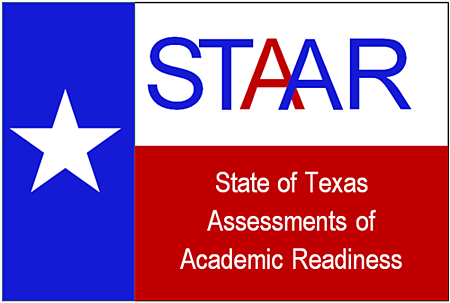Update: A lawsuit unrelated to RISD is delaying the release of TEA school ratings. The post will be updated when ratings are available.
At the August RISD Board meeting, district staff presented results of the 2024 state STAAR test, taken this past spring and the primary basis for upcoming 2023-24 school ratings under the Texas accountability system.
“As with previous years, we always emphasize that the STAAR assessment is a single test taken by students on a single day, and we caution against drawing holistic conclusions about any campus, good or bad, based on a single indicator,” said Superintendent Tabitha Branum. “With that said, our results this year were a mix of very positive highlights and opportunities for improvement tied to pandemic-impacted grade levels. Consistent with most years, these STAAR results are one indicator among several that our staff evaluates to help us determine areas for additional focus and resources.”
Key points of the presentation included:
- STAAR results this year reflect a number of changes to the STAAR test and accountability system in general in both 2023 and 2024. For that reason, individual student performance, school ratings, and district ratings from previous years cannot be compared to 2024 scores or ratings.
- 2024 ratings are an “apples to oranges” comparison with previous years ratings, and establish a new baseline for the schools and districts participating in the accountability system moving forward. Because of the changes, a campus could have grown academically yet be assigned a rating lower than their previous rating.
- High school student performance on STAAR End of Course (EOC) assessments in RISD was strong, coupled with outstanding growth in College, Career, & Military Readiness (CCMR) measures. All district high schools increased overall academic growth from last year.
- Among all students, RISD met or exceeded state scores on 17 of 20 assessments at the “Meets” level and also outperformed the state on 17 of 20 assessments at the “Masters” level. This comparison measure is a benchmark for RISD because district demographics closely mirror the state in many areas.
- Reflecting a statewide trend, scores in grades 3-4 dipped at many elementary schools, in particular among students in those grades from lower socioeconomic families. Those grade levels represent students whose ability to participate in Pre-K was impacted by the pandemic and who began their early elementary experience through either no formal learning, virtual learning, or in a school environment impacted by pandemic-era protocols.
- The lower performance in the cohort of students whose early childhood learning foundation was impacted by the pandemic is likely to impact RISD’s district rating this year, in addition to the ratings of some elementary campuses.
- In addition to the ongoing focus on academic growth for all students, RISD is deploying strategies and interventions to continue to academically grow students whose early childhood education was disrupted by the pandemic.
“While we have individual examples in some elementary grades and subjects of significant growth, overall the impact of the pandemic on students who did not have the opportunity to build strong foundations in early elementary school is showing up in these results,” said Branum. “Because student performance on the STAAR test is almost the sole data point used by the state to arrive at elementary school ratings, the lower scores in this band of grade levels is expected to result in school ratings at a number of elementary campuses that will be lower than our educators, parents, and community are accustomed to. This is a trend not specific to RISD, and we anticipate some lower elementary school ratings this year across our region and state.”
When the Texas Education Agency releases letter grades for Texas schools and districts (timeframe currently unknown), parents will be able to view their campus accountability grade here.
“Our RISD parents and community can be assured that we are directing significant resources to directly focus on areas for student growth that were inhibited by the pandemic,” continued Branum. “We take student achievement and outcomes very seriously, including growth for ALL students – our highest achievers, those who are struggling, and every student in between. As an organization, we view the updated state standards as a driver for continuous improvement – until we are at 100% for all students, we will keep striving for academic growth.”
The STAAR test is a required assessment for students in Texas, and while RISD uses it as one way to measure academic progress, it is not used as part of a student’s grade, nor do colleges evaluate STAAR performance in the admissions process. The state of Texas defines the “approaches,” “meets” or “masters” level as a passing score.
For more in-depth information about STAAR scores, accountability system changes, RISD highlights, challenges, and planned next steps, watch the August 8 STAAR presentation and discussion.
Parents can access individual student STAAR scores through Focus
When released, parents can access school ratings here through the TEA portal
See RISD All Student STAAR scores compared to the State


